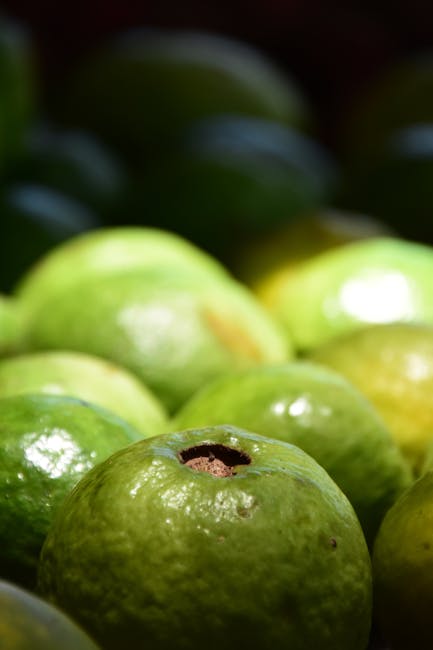TB12 Diet: The Complete Guide to Tom Brady’s Nutrition Plan for Peak Performance
Understanding the TB12 Diet: More Than Just a Diet
The TB12 Diet, popularized by legendary NFL quarterback Tom Brady, isn’t just a weight-loss plan; it’s a comprehensive approach to nutrition and lifestyle designed to optimize performance and longevity. It emphasizes whole, unprocessed foods, hydration, and mindful eating habits to fuel the body and promote recovery. This detailed guide delves into the core principles, food choices, potential benefits, and limitations of the TB12 Diet, helping you determine if it aligns with your health goals.
The Core Principles of the TB12 Method
The TB12 Diet is deeply rooted in the philosophy of the TB12 Method, a holistic wellness program encompassing nutrition, training, and recovery techniques. The foundational principles of the diet include:
1. Prioritizing Whole, Unprocessed Foods:
The diet heavily emphasizes whole, unprocessed foods, minimizing processed foods, refined sugars, and unhealthy fats. This focus on nutrient-dense foods aims to provide the body with essential vitamins, minerals, and antioxidants for optimal function and cellular repair.
2. Hydration is Key:
Proper hydration is paramount in the TB12 philosophy. Brady and his team stress the importance of consistently drinking plenty of water throughout the day to maintain optimal bodily functions, aid digestion, and prevent dehydration, particularly crucial for athletic performance.
3. Alkaline-Based Diet:
The TB12 Diet leans towards an alkaline-based approach, focusing on foods that help maintain a balanced pH level in the body. This philosophy suggests that an alkaline environment can aid in reducing inflammation and promoting overall health. However, the scientific evidence supporting this concept remains debated.
4. Inflammation Reduction:
Reducing inflammation is a central goal of the TB12 Diet. The focus on whole foods, hydration, and the avoidance of inflammatory substances contributes to this objective. Chronic inflammation is linked to various health problems, and this dietary approach seeks to mitigate its impact.
5. Personalized Nutrition:
While the TB12 Method offers a general framework, it advocates for personalized nutrition plans tailored to individual needs and goals. The specific dietary choices should be adjusted based on factors like age, activity level, and individual health conditions.
TB12 Diet Food Choices: What to Eat and Avoid
The TB12 Diet promotes a wide array of nutrient-rich foods while restricting others. Let’s delve into the specifics:
Foods to Emphasize:
- Fruits and Vegetables: A cornerstone of the diet, emphasizing a variety of colorful produce for a wide spectrum of vitamins and antioxidants.
- Lean Protein Sources: Includes fish, poultry, and plant-based options like legumes and tofu.
- Whole Grains: Brown rice, quinoa, and other whole grains provide sustained energy and fiber.
- Healthy Fats: Olive oil, avocados, nuts, and seeds provide essential fatty acids.
- Hydration: Water is crucial, often emphasized as the primary beverage.
Foods to Avoid or Limit:
- Processed Foods: Highly processed foods, fast food, and packaged snacks are discouraged due to their lack of nutritional value and potential for inflammation.
- Refined Sugars: Added sugars in processed foods, sugary drinks, and desserts are heavily restricted.
- Unhealthy Fats: Trans fats and saturated fats are minimized to reduce the risk of heart disease.
- Excessive Caffeine and Alcohol: Moderation or elimination is often recommended due to their potential dehydrating and inflammatory effects.
- Dairy (Often): While not strictly prohibited, dairy is often limited or avoided due to potential inflammation concerns. Many adherents choose plant-based alternatives.
Potential Benefits of the TB12 Diet
Adhering to the TB12 Diet may offer several potential benefits:
- Improved Energy Levels: The emphasis on whole foods and hydration can lead to sustained energy levels throughout the day.
- Weight Management: The focus on nutrient-dense foods and restriction of processed foods and sugars can support healthy weight management.
- Reduced Inflammation: The emphasis on anti-inflammatory foods and lifestyle choices can help mitigate chronic inflammation.
- Improved Athletic Performance: The diet is specifically designed to support athletic performance by providing sustained energy and promoting recovery.
- Enhanced Gut Health: The inclusion of fiber-rich foods can promote a healthy gut microbiome.
Limitations and Considerations of the TB12 Diet
While the TB12 Diet offers potential benefits, it’s essential to consider its limitations:
- Restrictive Nature: The diet can be restrictive, potentially leading to nutrient deficiencies if not carefully planned. Professional guidance is highly recommended.
- Lack of Scientific Evidence: While many principles align with established nutritional guidelines, some aspects, like the emphasis on alkalinity, lack robust scientific backing.
- Cost: The focus on high-quality, often organic, ingredients can make the diet relatively expensive.
- Sustainability: Strict adherence to the diet may be challenging to maintain long-term due to its restrictive nature and the demand for meticulous meal planning.
- Individual Needs: The diet may not be suitable for everyone, and individuals with specific dietary restrictions or health conditions should consult with a healthcare professional or registered dietitian before adopting this plan.
Conclusion: Is the TB12 Diet Right for You?
The TB12 Diet offers a comprehensive approach to nutrition and wellness, but it’s crucial to approach it with a balanced perspective. While the emphasis on whole, unprocessed foods and hydration aligns with many health recommendations, its restrictive nature and lack of robust scientific evidence for some aspects require careful consideration. Before adopting this or any restrictive diet, consult a registered dietitian or healthcare professional to ensure it aligns with your individual needs and health goals. They can help you tailor a plan that’s both effective and safe for you.
Frequently Asked Questions (FAQs)
Q: Is the TB12 Diet a fad diet?
A: While it gained popularity due to Tom Brady’s association, the core principles – emphasizing whole foods, hydration, and minimizing processed foods – align with established healthy eating guidelines. However, some specific aspects lack strong scientific evidence.
Q: Can I lose weight on the TB12 Diet?

A: Weight loss is a possible outcome, as the diet’s focus on whole, unprocessed foods and reduced calorie intake from processed foods and sugars can lead to a calorie deficit. However, weight loss depends on overall calorie balance.

Q: Is the TB12 Diet suitable for vegetarians or vegans?
A: The TB12 Diet can be adapted for vegetarian and vegan diets. Plant-based protein sources, whole grains, fruits, and vegetables are central to the diet.
Q: How much does the TB12 Diet cost?

A: The cost can be higher than a typical diet because it emphasizes high-quality, often organic, ingredients.
Q: What are the potential risks of the TB12 Diet?
A: Potential risks include nutrient deficiencies if not carefully planned and the potential for social isolation due to the restrictive nature. Consult a professional before beginning.



